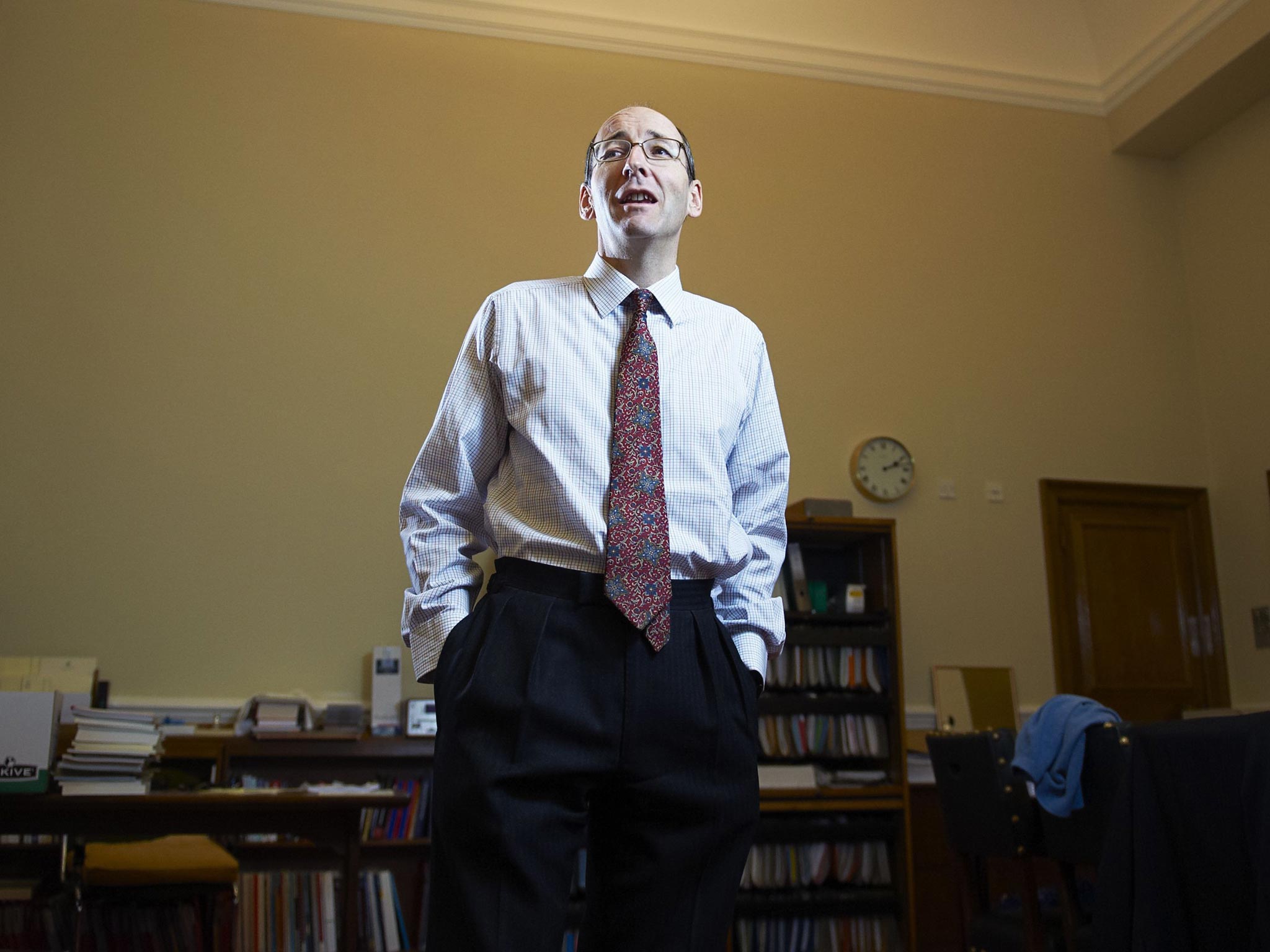‘They’re no Rooneys...’ Treasury chief’s scathing verdict on top banking talent
Andrew Tyrie tells James Moore he believes financial reward should be earned, and senior figures held accountable

Is Andrew Tyrie the most powerful politician outside the Cabinet? He may have had more impact than some of his colleagues within it.
When I put that point to him, however, he responds with a wry smile: “People talk about how powerful the Treasury Committee has become. Some of us wonder where all these levers of power are. If you spot any, do let me know.”
But he’s surely being self-deprecating there. The City is still grappling with the impact of some of the reforms forced upon its banks by his Parliamentary Commission on Banking Standards, which drew many of its members from the committee.
It achieved electrification of the “ring fence” around retail banking, and handed watchdogs the power to break up banks which seek to “game” that ring fence.
Banking executives should also find it difficult in future to duck responsibility for scandals, as they repeatedly have done with the ugly parade of disgraces we have seen in recent months.
Tyrie, however, is of the firm belief that the industry may thank him and his colleagues one day. Take the “certification” or registration regime for the casino traders who gamble millions daily and can easily break banks if they misbehave. This, he says, should end the merry-go-round of bad traders hopping from bank to bank, picking up bonus cash as they go.
“Let’s take a Libor trader. The first question when they go for a job at another bank should be: ‘Where’s your certificate?’ They should also probably be asked about their handover notes from their last job. Banks, when you discuss this with them, realise that handover notes and certification can have huge value for them. They don’t want to take unreliable staff on to their trading floor.”
This, he maintains, refutes the argument tabled by some in the City that his reforms will force banks to abandon London in favour of more lightly regulated centres.
Tyrie doesn’t have much time for another of their arguments: that to be successful banks have to pay up to attract “top talent” in the way football clubs pay up for the likes of Lionel Messi or Wayne Rooney or opera buffs pay to hear the best singers.
“I don’t think bankers are like Messis or Rooneys, or for that matter Pavarottis,” he says. “We know quite quickly whether they’re delivering the goods. In banks we are usually talking about a range of skills available from a good number of people, certainly with some training.
“There are certainly some exceptionally able bankers. There are also the Warren Buffetts of this world. But banks do not need to engage in an auction of bonuses and remuneration in order to obtain the banking equivalent of Warren Buffett. People should be rewarded when it’s clear they have really earned it. Reward should be related to the maturity of the risk.”
When Tyrie enters a debate like this you can be sure it’s only with the benefit of a great deal of research. Staff are in awe of his work habits and frequently receive emails early in the morning and at weekends.
“We don’t need more regulation, as the former Governor of the Bank of England Mervyn King pointed out, we may be able to get by with less,” he continues.
“We need higher quality regulation. We must get away from mindless box ticking, and data collection. Too much of that has been going on, it seems to me, just to protect regulators’ backs.”
The performance of Clive Adamson before the committee could be seen as an example of what is going wrong with the culture at the watchdogs. Now a senior figure at the Financial Conduct Authority, Adamson approved the disgraced Paul Flowers’ chairmanship of the Co-operative Bank, and tied himself in knots trying to justify it as “the right decision at the time”.
Tyrie says Adamson’s testimony demonstrates what his committee wants to achieve.
“We’re trying to obtain more government by explanation. We’re trying to ask questions that a wider public wants asked, forcing people in powerful positions to explain how they came to their decisions.”
Tyrie has not been shy of criticising his Government – at one point he described the initial proposals for banking reform from the Treasury, in the wake of his Commission’s work, as “so weak as to be virtually worthless”.
But would he want to join that Government? Tyrie is coy: “I’ll do my best with whatever comes my way. It’s a great honour to serve in the executive but I’ve got a job I like on behalf of Parliament.”
His willingness to speak his mind has occasionally led to the unwanted sobriquet of maverick MP being attached to his name. He would prefer “independent minded”.
It is the Government’s loss that it can’t find a space for someone of his undoubted ability. But it might be the country’s gain – his committee’s current inquiries range from the Budget, to the governance of the Bank of England, to the lamentable performance of regulators in the run-up to the near collapse of HBOS.
Subscribe to Independent Premium to bookmark this article
Want to bookmark your favourite articles and stories to read or reference later? Start your Independent Premium subscription today.

Join our commenting forum
Join thought-provoking conversations, follow other Independent readers and see their replies